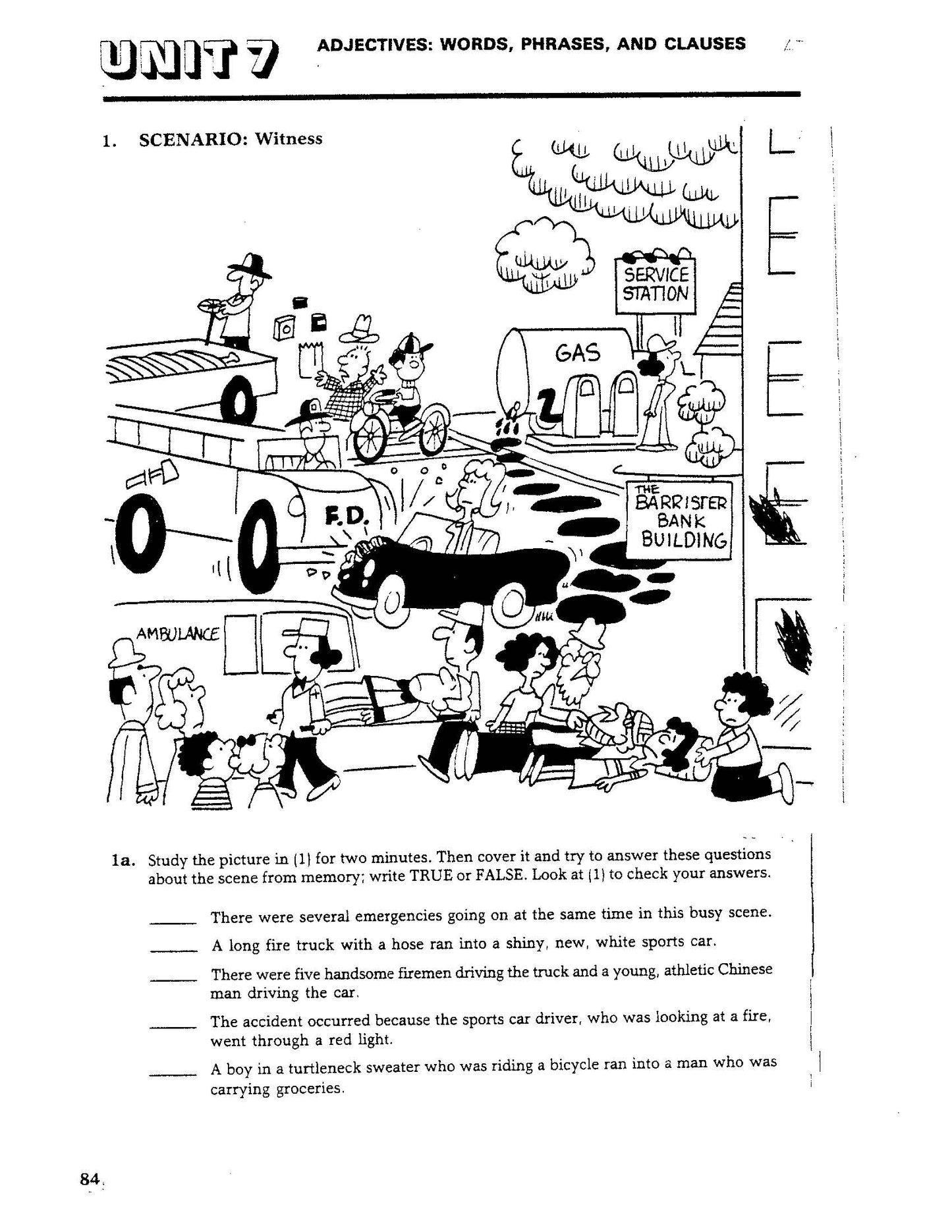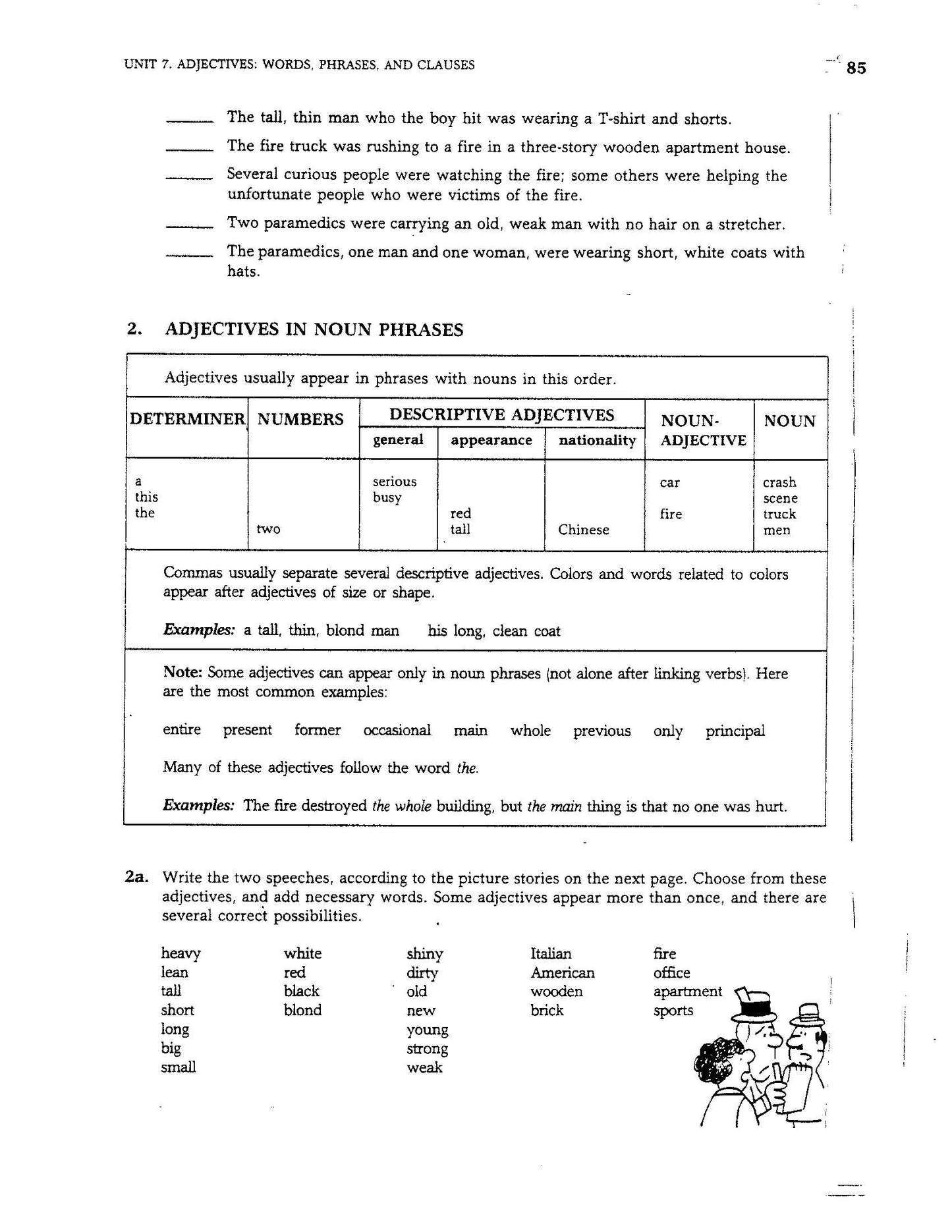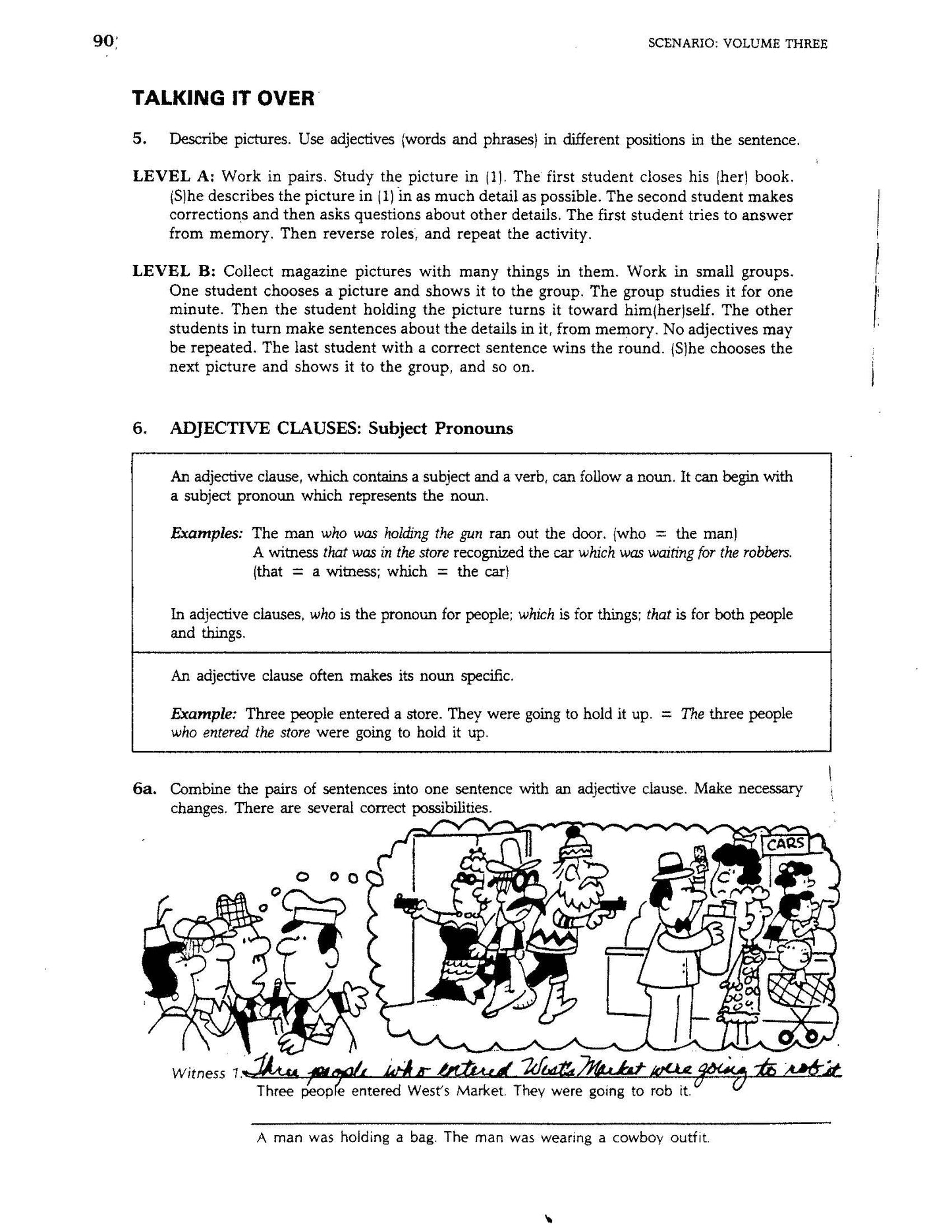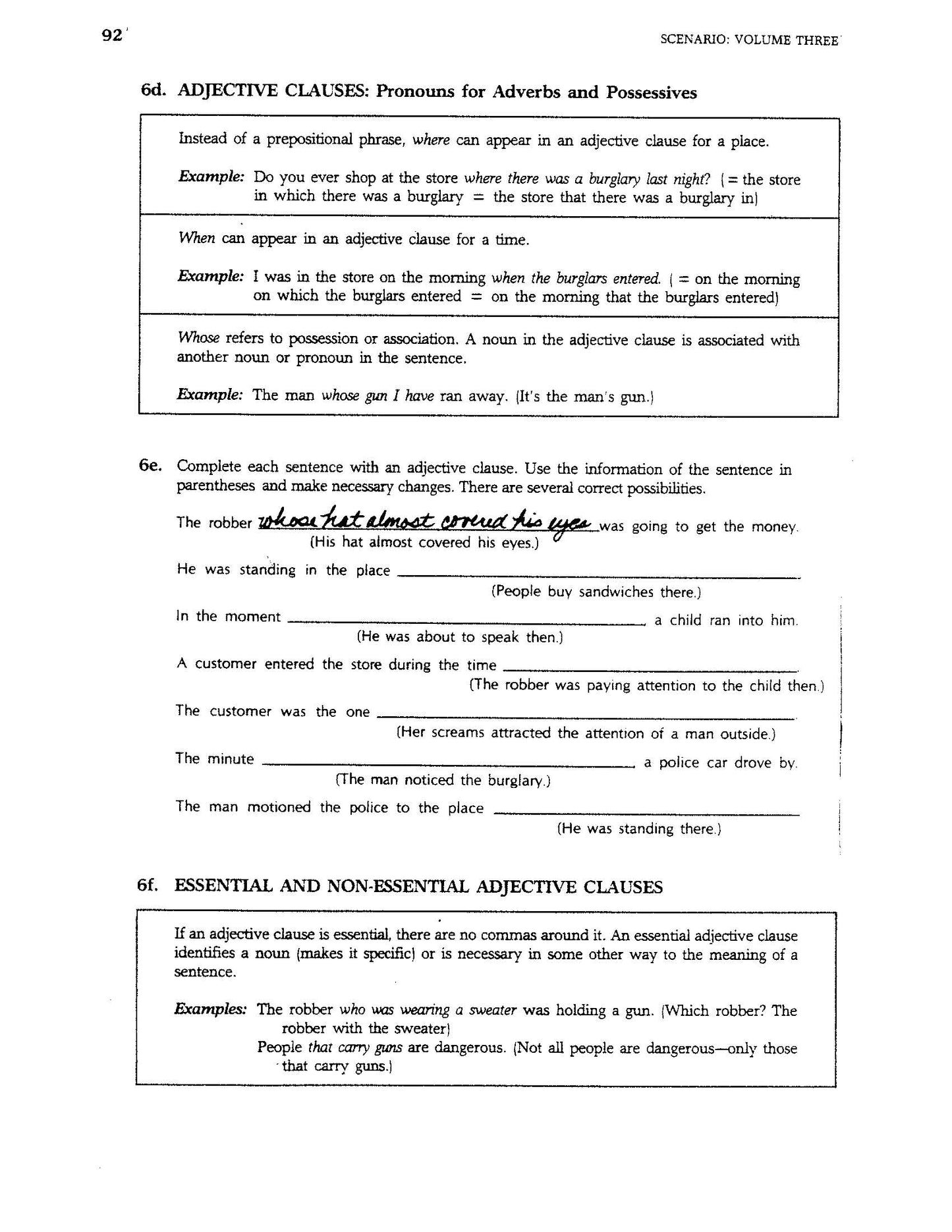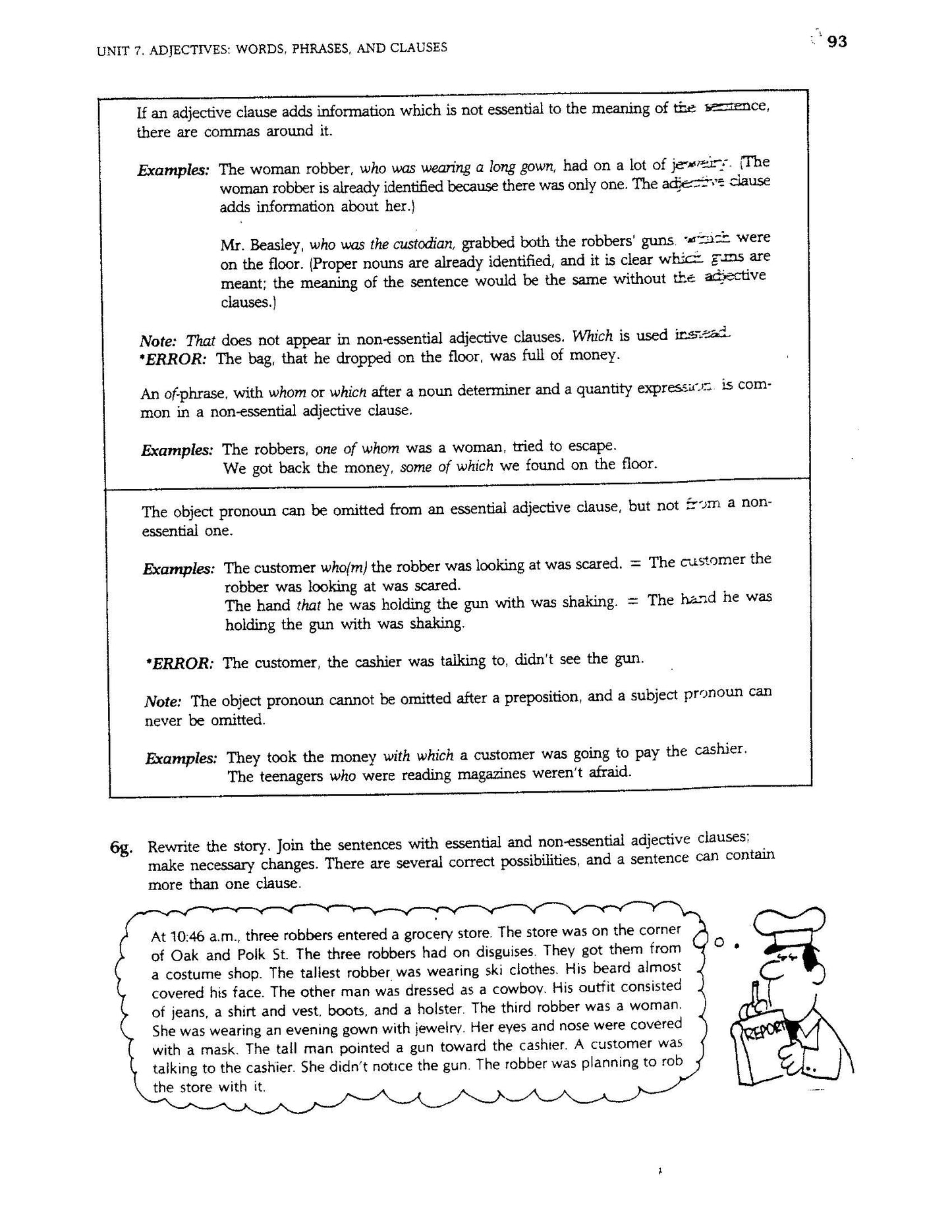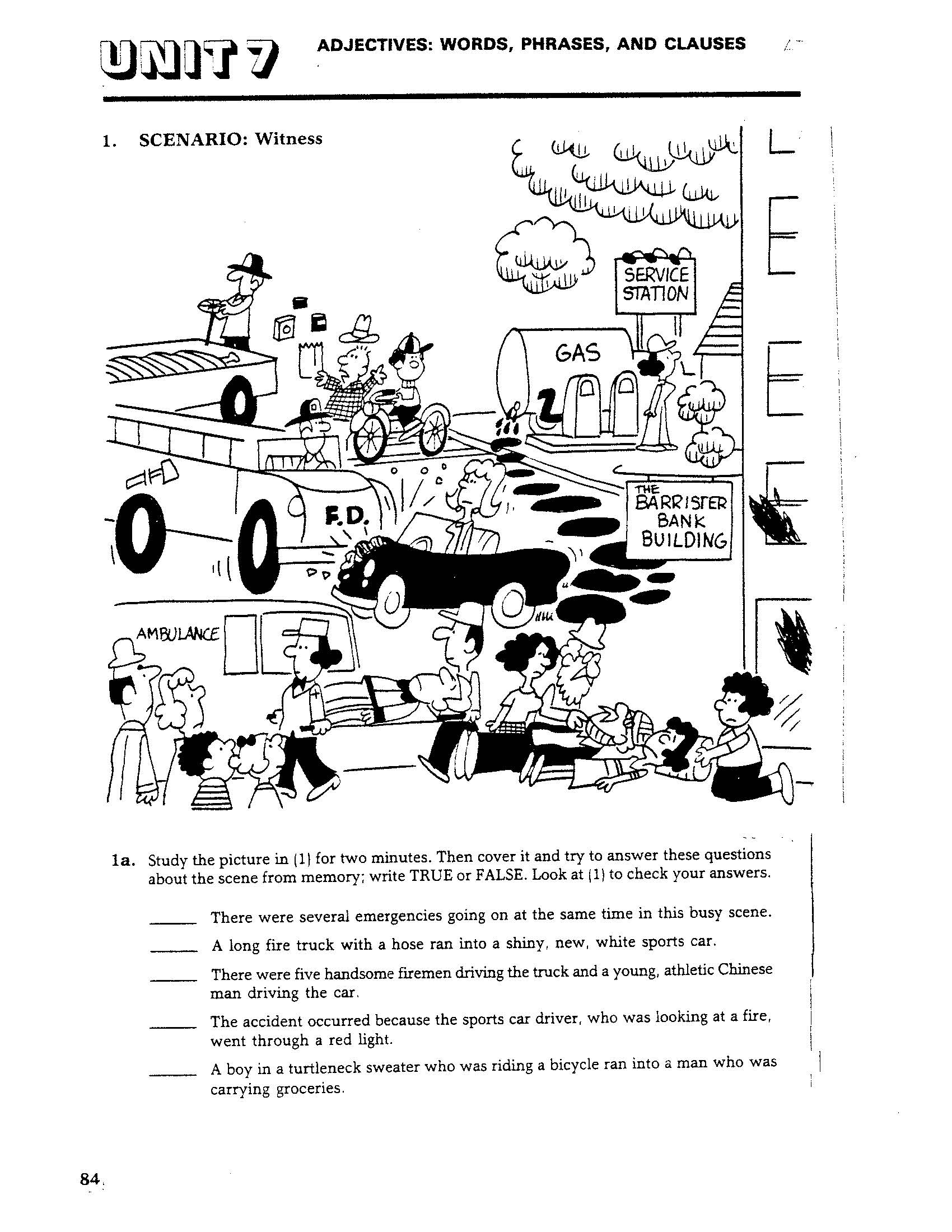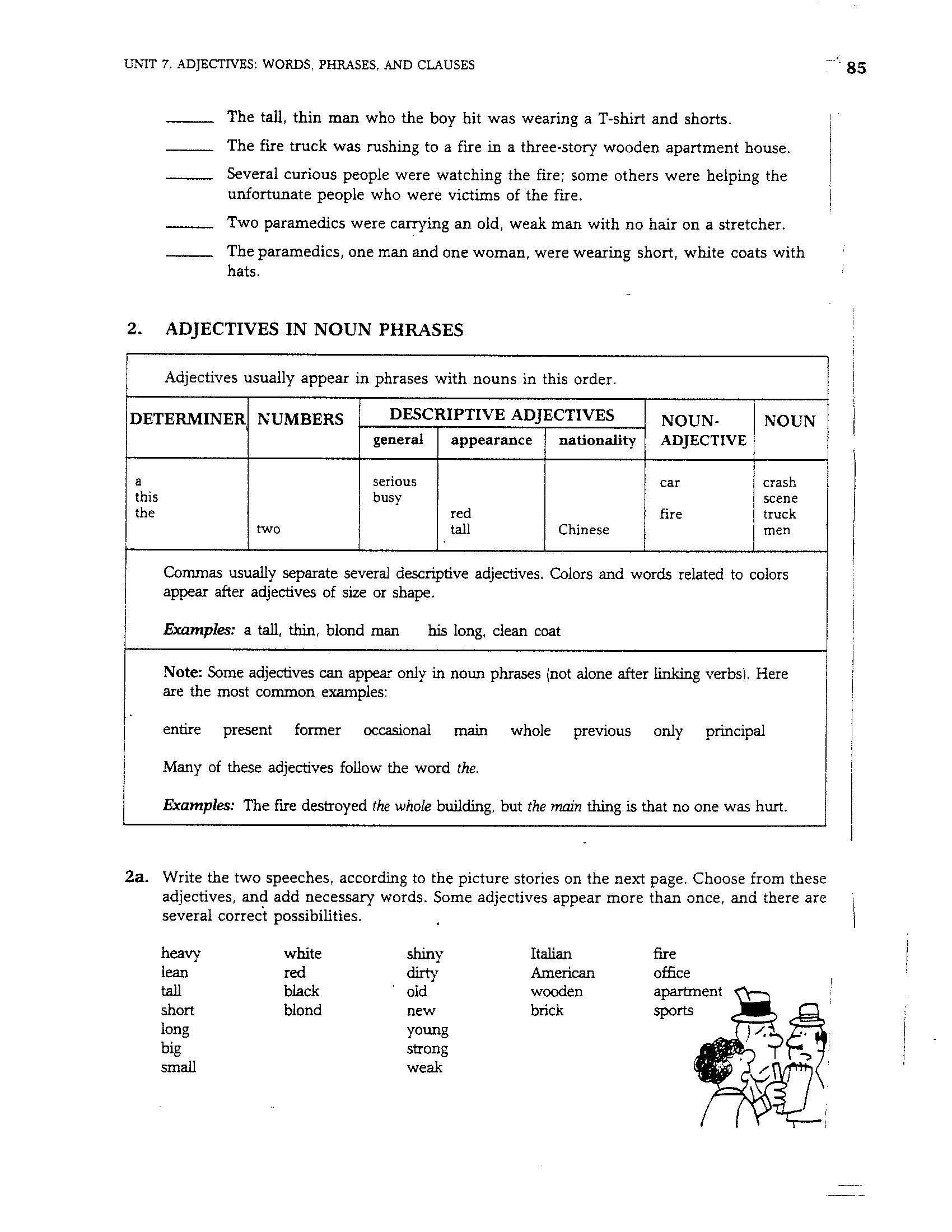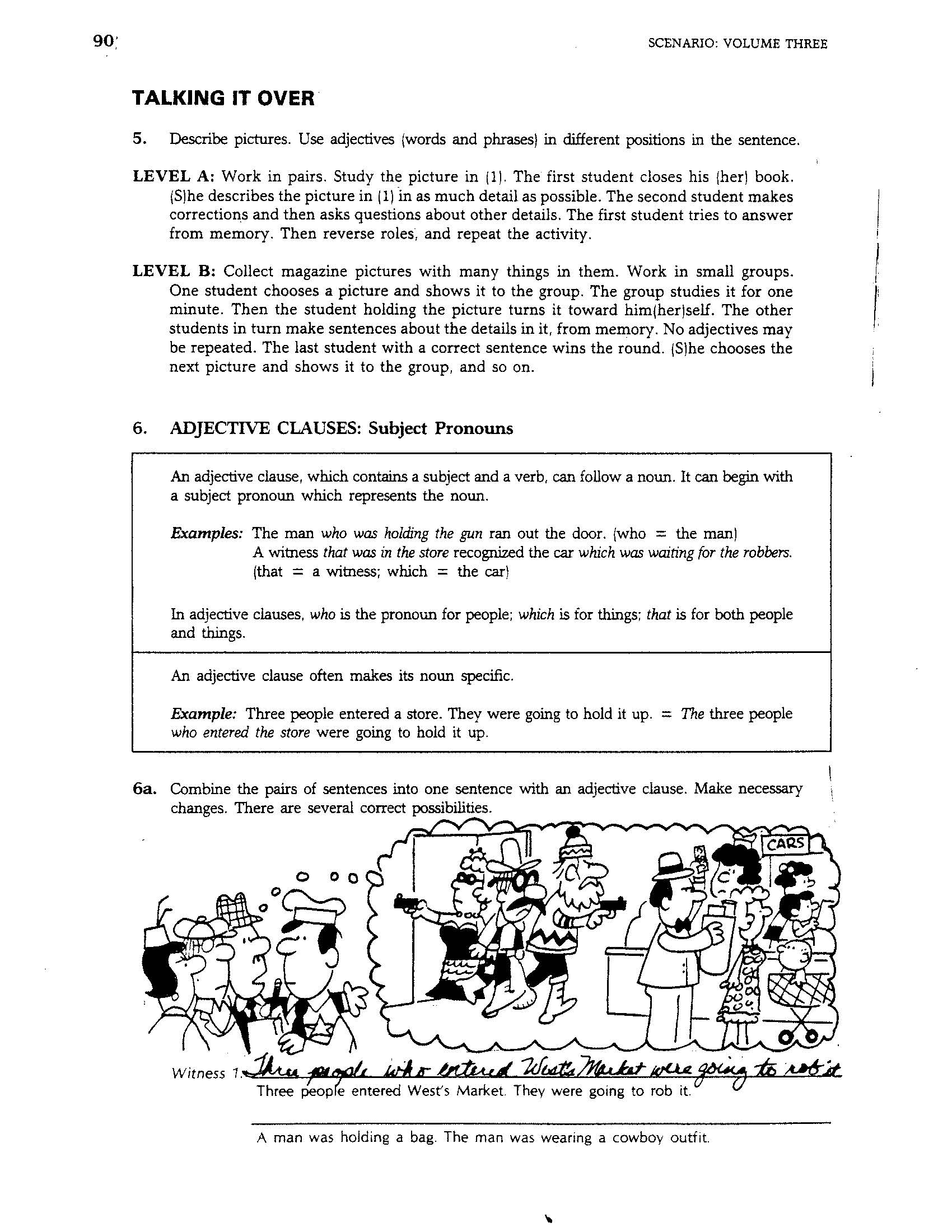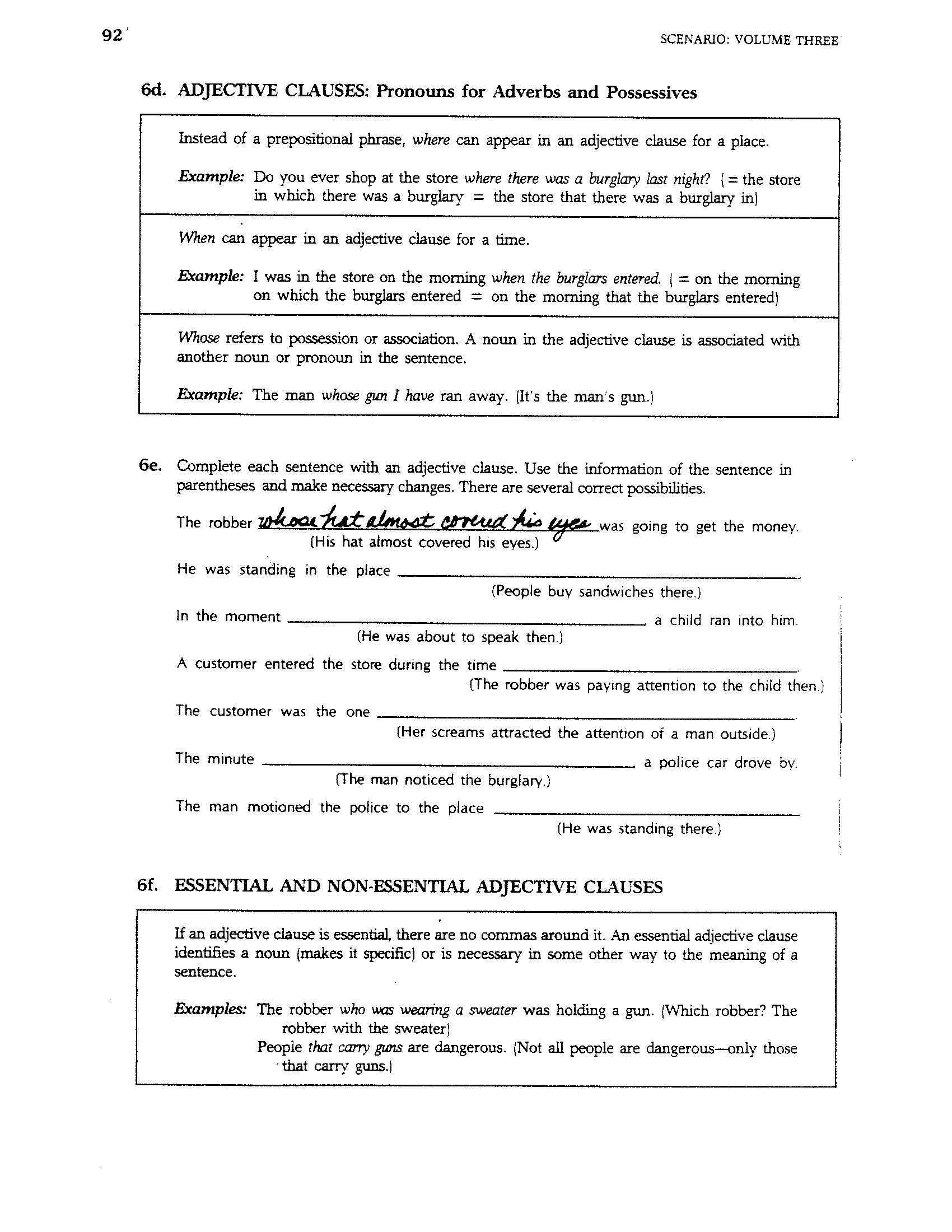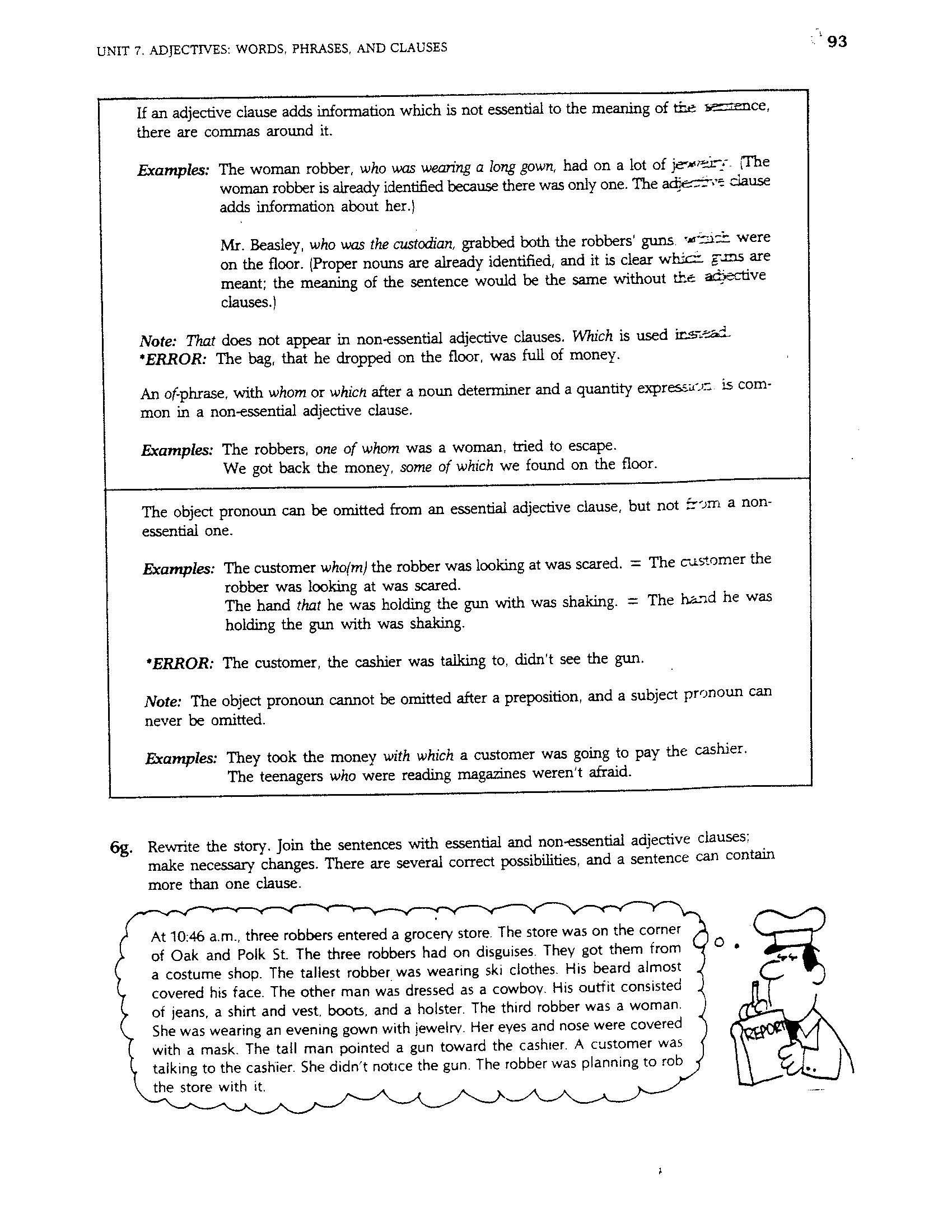1
/
of
5
Work/Life English
D-12.15 Use Words, Phrases & Clauses to Modify or Describe Nouns & Pronouns
D-12.15 Use Words, Phrases & Clauses to Modify or Describe Nouns & Pronouns
Regular price
$2.00 USD
Regular price
Sale price
$2.00 USD
Unit price
/
per
Unit 7: Adjectives: Words, Phrases, Clauses (“Witness”) of the Original Scenario Volume Three: English Grammar in Context, pages 84-95
12 pages
Who It’s For: (Teachers & Helpers of) Advanced Grammar & Style Promoters Reading to Describe Things, Scenes, & Situations with Precision & Style
Why It’s Useful: Though perhaps secondary to Asking & Answering, Explaining, and Advising, Describing is also a useful linguistic function. This old-fashioned, black and white, grammar segment employs the activity of “close observation” to present, practice, and assess ability in the use of describing words, noun phrases, and adjective clauses.
What You’ll Do:
[1] Use the visual Scenario: Witness, study the “accident scene.” While marking the Comprehension statements True or False, notice the use of words, phrases, and clauses to describe the picture with accuracy.
[2] Understand Grammar Explanation 2: Adjectives in Noun Phrases, noting their word order. In Exercise 2a, use given + other adjectives to tell a Picture Story about the action. After Grammar Box 3: Adjectives After Linking Verbs, continue with 3a., reports by other “Witnesses.” In 4-4b: Adjectives After Nouns & Pronouns, learn how to arrange describing words for places, times, space in sentences after nouns ; 4c and 4d clarify the use of Object Complements (predicate expressions that refer to direct objects). Prove your descriptive abilities in 5. “Talking It Over.”
[3] Sections 6-6d cover “Adjective Clauses.” In Sections 6-6a, learn to use who, that, and which to start syntactic constructions that add info about preceding nouns or pronouns. In 6b-6c, do the same with who(m), that, and which as Object Pronouns. In 6d-6e, practice using where (“at/in which”), when (“at the time that”), and whose as relative pronouns for adverbs and possessives. Then in 6e-6f, become aware of the difference between “Essential” and “Non-Essential” Adjective Clauses. Demonstrate your understanding by rewriting “Robbery Reports.”
[4] Section 7, “Summary of Adjectives,” reviews eight sentence patterns. In 7a, show that you can utilize all of these effectively by completing a story.
Couldn't load pickup availability
